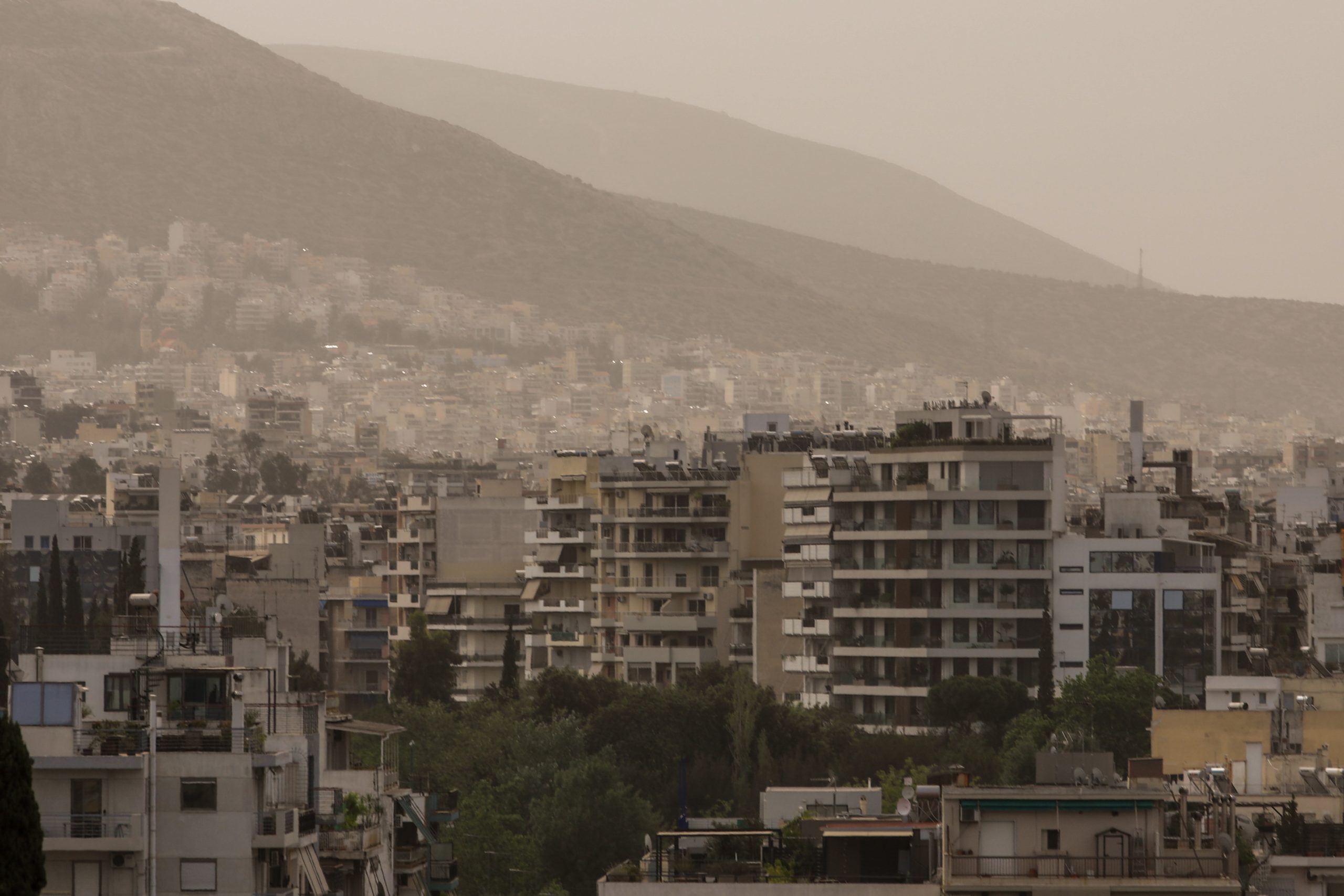Health authorities in Greece are warning individuals with high-risk conditions, including heart and respiratory ailments to remain indoors after a new wave of African dust is forecast for the next two days.
Combined with the high temperatures for the season, the dust storm is creating a smog-like effect impacting air quality and reducing visibility. Showers are also expected. Mostly affected by the smog are vulnerable groups living in in urban centers.
“People should stay indoors and if they must go out to wear a mask,” said Matina Pagoni, president of the Athens and Piraeus Hospital Doctors’ Association (EINAP). Speaking to public broadcaster ERT, Pagoni went on to add that Covid-19 was also still around, adding that there were many hospitalizations.
Following the health ministry’s guidelines issued on Wednesday, the country’s National Public Health Organization (EODY) also advises people suffering from Chronic Obstructive Pulmonary Disease (COPD) and asthma as well as infants, children, and seniors over 65 to avoid going outdoors.
Possible symptoms from exposure to African dust include eye irritation (itching, watery eyes, tears), irritation of the upper and lower respiratory system (runny nose, sneezing, sore throat, difficulty breathing or shortness of breath, persistent cough, chest pain), allergic reactions (redness of the skin, itching).
An African dust storm which covered most of Greece late last month, turning the skies orange and severely impacting air quality and visibility, made international news. The phenomenon is caused by massive dust waves traveling via southerly winds from the Sahara Desert north across the Mediterranean.
According to new forecasts, the Sahara dust is set to affect most of Attica prefecture (the greater Athens-Piraeus area) and other parts of the country for the next two days.



